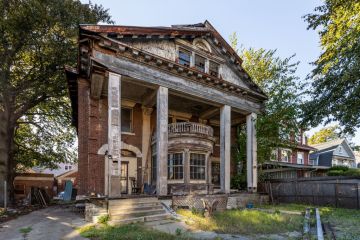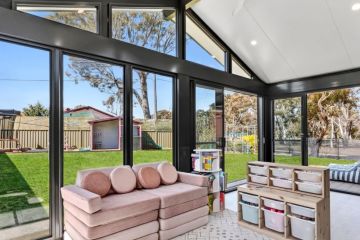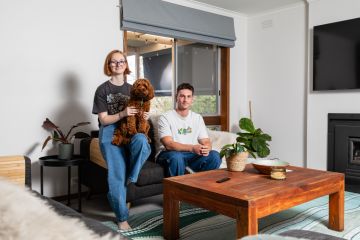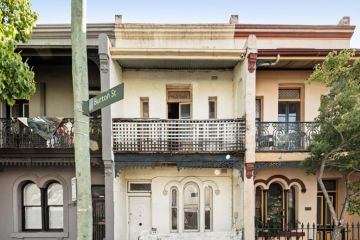Three things that could trigger a house price crash: interest rates, unemployment, the dollar
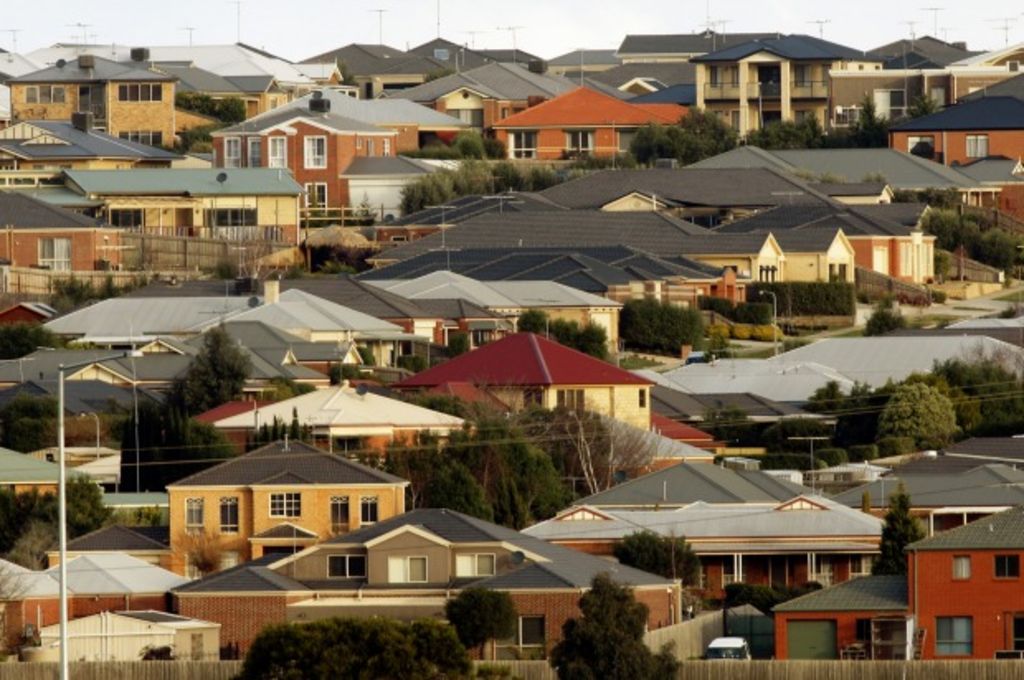
Bubble has replaced boom as the major descriptor for Australian house prices in the past week, but those betting on a sudden pop may be disappointed.
On Wednesday, the Organisation for Economic Cooperation and Development joined the chorus of doomsayers, saying Australian property prices were at risk of a “sharp correction”.
Earlier in the week Treasury Secretary John Fraser said Sydney and up-market areas of Melbourne were showing unequivocal signs of a bubble.
However, Domain Group senior economist Andrew Wilson is not convinced.
“We have nothing like the pre-conditions for a sharp fall in house prices,” he said.
In the current housing market, he said there were only three scenarios that could feasibly trigger a dramatic price drop of 5 to 10 per cent in Sydney and Melbourne – and none of them were particularly likely.
Trigger 1. Interest rates rapidly increased to 6 per cent
The Reserve Bank kept the official cash rate at 2 per cent in June – the lowest level in 60 years.
If the Reserve Bank of Australia raised interest rates quickly and by a significant amount, this could cause a price crash.
But for the Reserve Bank to willingly raise rates from 2 per cent to 6 per cent, economic growth above 5 per cent would need to occur, said Dr Wilson.
“And the only way that will happen is if we have another unbelievable mining boom,” he said.
“Even then they might not do it.”
For rates to be increased to levels that would crash the housing market, AMP Capital head of investment and chief economist Shane Oliver said it was contingent on the RBA “making a mistake”.
“They won’t raise interest rates regardless of the impact. It’s the outcome that matters, not the level of interest rates, and the Reserve Bank will raise rates only to the point it has the desired outcome,” he said.
“They will only raise rates until things have cooled down, not until they have crashed – they tread very gingerly.”
Dr Oliver said it was more likely that the RBA would increase rates in late 2016 at the earliest, and may only push them to 4.5 per cent.
BIS Shrapnel senior manager of residential property Angie Zigomanis said nothing short of a global event would get the RBA to hike rates in this way.
“They wouldn’t raise rates unilaterally, it would have to be some big world event to get them to do it as it would push the [housing market] into a pretty big downturn, their hand would have to be forced.”
Trigger 2. Unemployment above 10 per cent

Labour Force, Australia – April Key Figures. Source: Australian Bureau of Statistics
A fall in incomes as a result of national unemployment rates increasing to more than 10 per cent would have the potential to cause a fall in prices, Dr Wilson said.
The Australian Bureau of Statistics’ figures for April saw the unemployment rate decrease by 0.1 per cent to 6.1 per cent.
“Even with 10 per cent unemployment in the 1990s there wasn’t a crash,” Dr Wilson said.
Australia’s institutional set up towards mortgages is different to offshore markets, such as the United States, said Dr Oliver.
Most Australians will batten down the hatches and do everything they can to service their mortgages.
“Property has more resilience than foreign property markets in the sense that banks generally have maintained pretty good lending standards.”
In some states in the US, those who can’t afford their mortgage can hand in the keys under non-recourse arrangements, he said, while in Australia this is not the case.
Mr Zigomanis said unemployment rising to these levels was unlikely, “but not beyond the realms of possibility”.
Trigger 3. Australian dollar dropping below US50¢

The Australian dollar rallied on Wednesday on the back of the latest GDP figures.
If the Australian dollar dropped below US50 cents, this could also prompt the Reserve Bank to react by hiking interest rates to levels that would cause a correction in the property market, Dr Wilson said.
The lowest ever value of the Australian dollar has been US47.75¢ in 2001.
On Wednesday morning it was trading at US77.60¢, before spiking another half a cent on the back of better-than-expected GDP data. On Thursday it was back below US78¢.
However, there are few signs the dollar could drop to 50 cents with arguments about a currency crisis bordering on the “fanciful”, Dr Wilson said.
Dr Oliver said there would need to be some sort of external shock, such as China’s economy crashing, which was unlikely.
“The trouble I have with a crash scenario is there’s a view it will implode. But just because something is overvalued, doesn’t mean it will come crashing down – you’ve got to see things happen to cause a crash and it doesn’t look likely,” he said.
In fact, all three experts said that the most likely scenario is slowing house price growth and the prospect of stagnation for some time when interest rates eventually rise.
We recommend
We thought you might like
States
Capital Cities
Capital Cities - Rentals
Popular Areas
Allhomes
More
